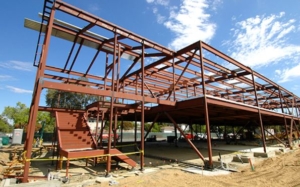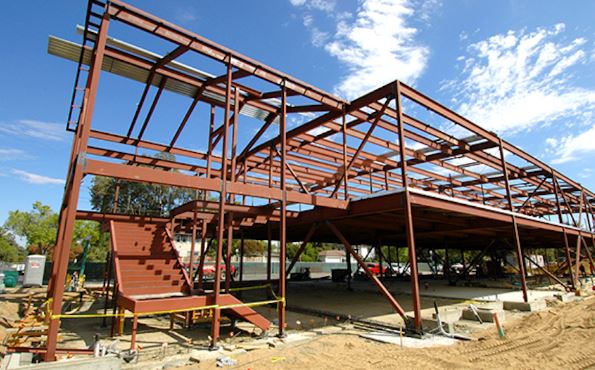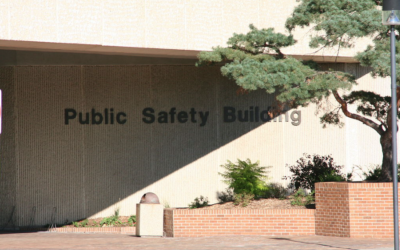 When bond elections are as abundant as they are this year, there’s no doubt thousands of new opportunities will be available for companies to interact with governmental entities. The demand for services of all types will be huge.
When bond elections are as abundant as they are this year, there’s no doubt thousands of new opportunities will be available for companies to interact with governmental entities. The demand for services of all types will be huge.
Government leaders at every jurisdictional level of government need funding for specific projects, and when the revenue is not available, voters are asked for approval to issue bonds. By studying the projects included in bond packages, companies interested in pursuing government business can get an early look at what projects will be launched and the costs that have been projected for each.
Here’s a sampling of what is happening throughout the country.
Arizona
The state of Arizona has signaled its desire to make major renovations to its schools. More than two dozen school districts in the state will ask voters to approve projects projected to cost more than $1.4 billion. The Liberty Elementary School District needs $49.8 million for construction of a new elementary school facility. The Dysart Unified School District will ask for bonding authority of $152 million to fund safety and security upgrades, technology, school renovations, construction of two elementary schools, and more. The Chandler Unified School District needs approximately $3 million for projects, and Nadaburg Unified School District will ask voters to approve $2.4 million. The Scottsdale Unified School District hopes to get funding for various types of contracted services.
Texas
It has been 25 years since Tarrant County College (TCC) held a bond election, but the district now has plans for a large one. TCC will seek approval in November for the issuance of $825 million in bonds and notes for the purpose of constructing, renovating, equipping, and improving school buildings throughout the district. Redevelopment of the Northwest Campus has a projected cost of $308 million for projects that include construction of three new facilities and smaller projects such as expansion of parking areas. The Southeast Campus will be allocated $125 million to replace or repair outdated facilities, and the Academic Building at the Northeast Campus will be demolished to expand the outdoor section of the campus.
Another highly watched bond issue in Texas comes from the Metropolitan Transit Authority (METRO) in Houston. The transit authority is promoting its Moving Forward Plan for a $3.5 billion bond vote to add 75 miles of METRO Rail lines, 16 miles of light rail, and nearly $600 million in local bus system enhancements. Other critical transit projects include 21 new or improved Park & Rides or transit centers, 110 miles of a regional express network, and 10 new community connectors or circulators. The overall price tag for the plan is $7.5 billion, more than half of which would be funded via state and federal transportation revenue. METRO does not collect property taxes, but the agency receives a small percentage of sales tax from Harris County. That funding source will also help support transit projects.
Numerous cities in Texas also will hold bond elections in November. The city of Denton has four propositions totaling approximately $222 million with one of the propositions seeking bonding authority for $154 million for street improvement projects. Sugar Land has projects with an estimated cost of $90 million that will include $26.3 million for the design and construction of an emergency operations center/public safety dispatch building and a public safety training facility.
Michigan
The Ann Arbor Public Schools District has a $1 billion capital bond on the ballot in November. The school district has 35 buildings, including 32 schools that were built between the 1950s and the 1970s and the facilities have significant needs. Michigan is one of only 12 states not required to provide state funding for school infrastructure.
Iowa
The Iowa Valley Community College District (IVCCD) has scheduled a $32 million general obligation bond election to fund projects on the Iowa Falls, Marshalltown, and Grinnell campuses. Revenue from the bond funds will be used to upgrade security systems, improve lighting, renovate STEM classrooms, update the library and Student Success Center, remodel the conference center, renovate student housing and upgrade HVAC and electrical systems.
Maine
The state of Maine will ask voters through Question 1 to allow the issuance of general obligation bonds totaling $105 million. The funding will be used for infrastructure projects that include upgrades to bridges, roads, airports, ports, state highways, and other transportation projects. If passed, the bonding will trigger an additional $137 million in matching federal grants and other additional funds. Priority 1 roads include Route 1 in Aroostook County, the Maine Turnpike, and the interstate system.
Huge amounts of funding for projects of all types are contingent on voter approval next month. In most instances, voters are expected to grant approval. Companies interested in contracting opportunities are advised to monitor these very important upcoming elections.
Strategic Partnerships, Inc. (SPI) is leading the way in the rapidly expanding area of public-private partnerships. Learn about SPI’s service offerings in both the public and private sectors by contacting them today.







